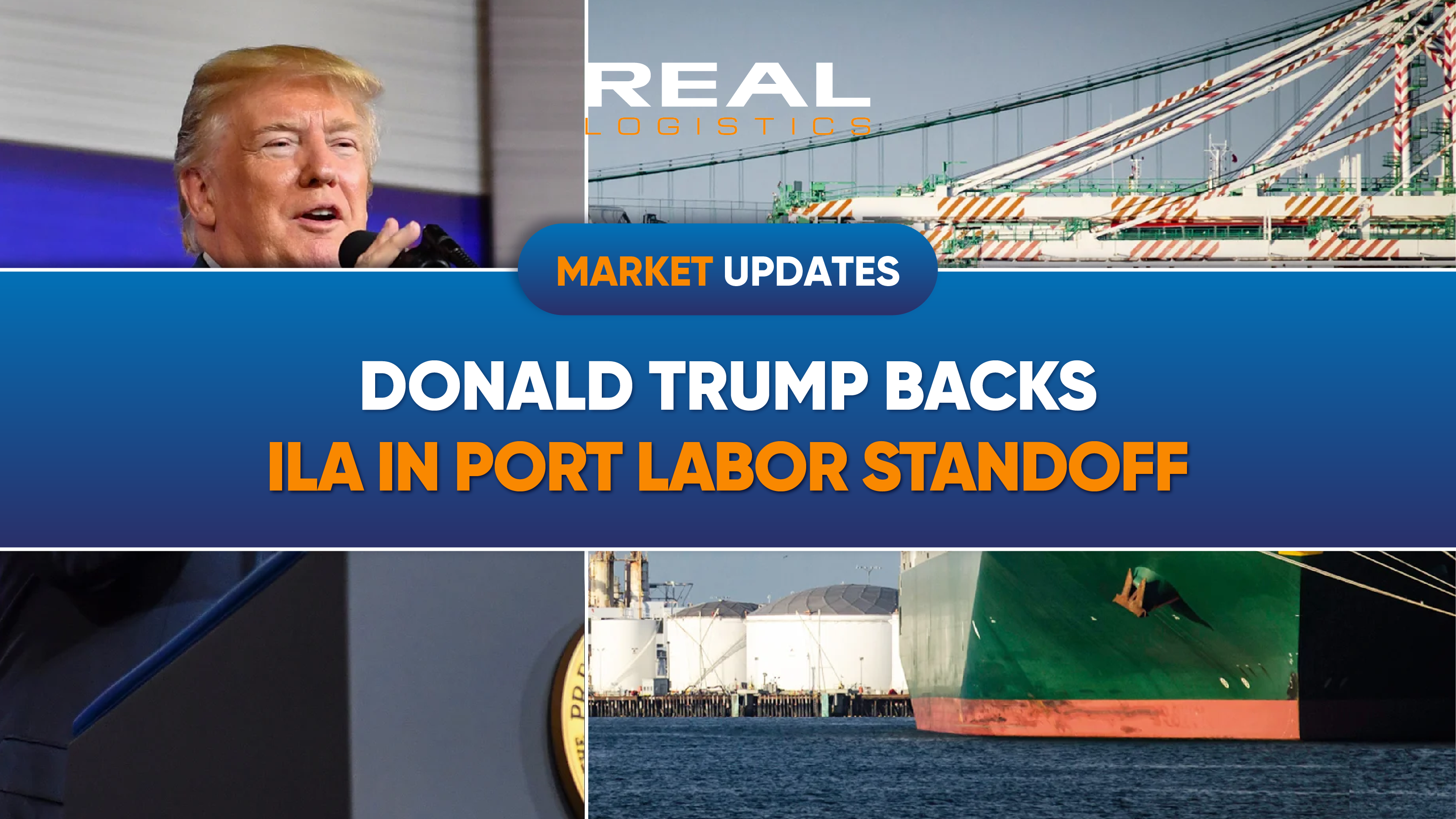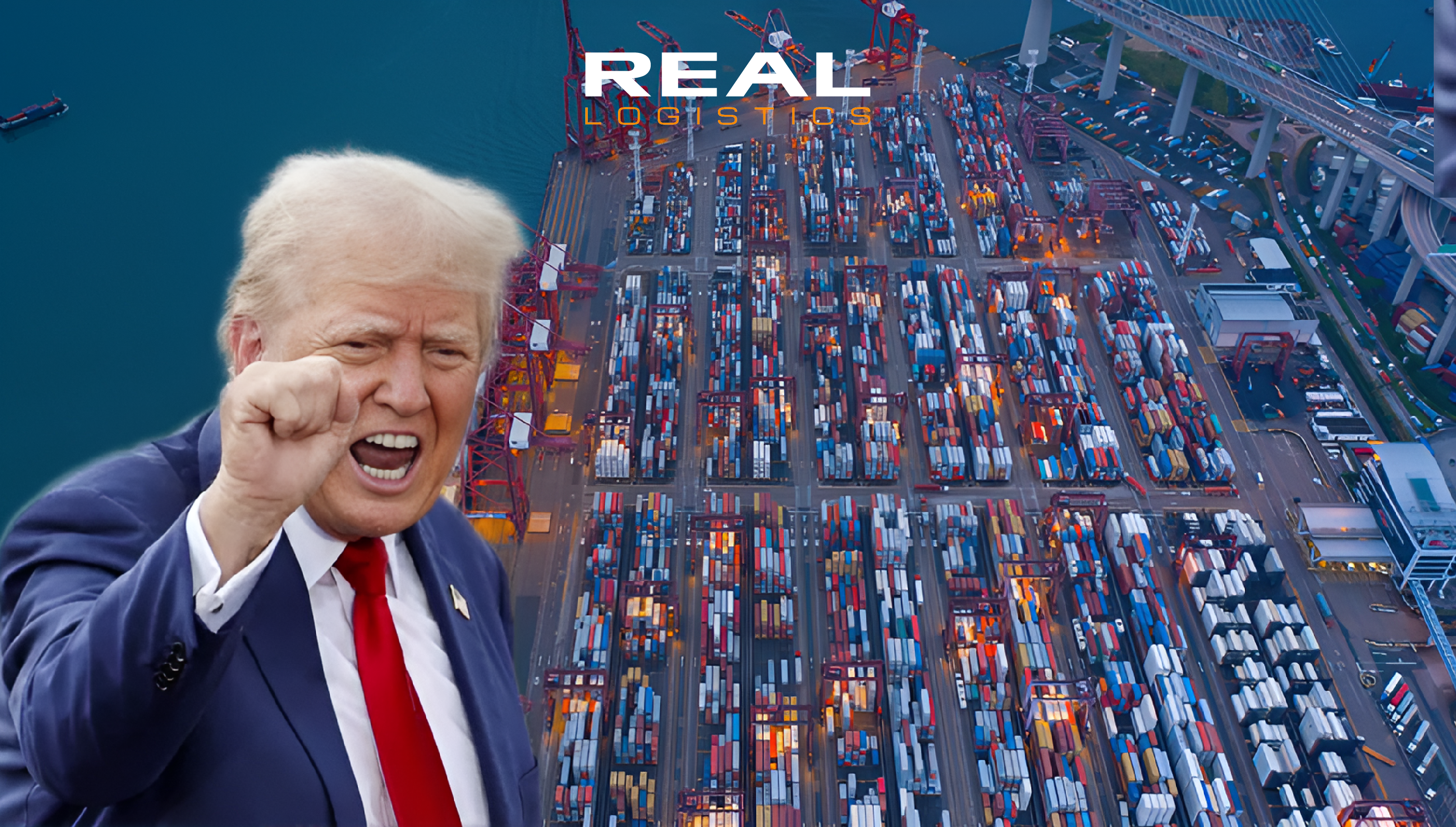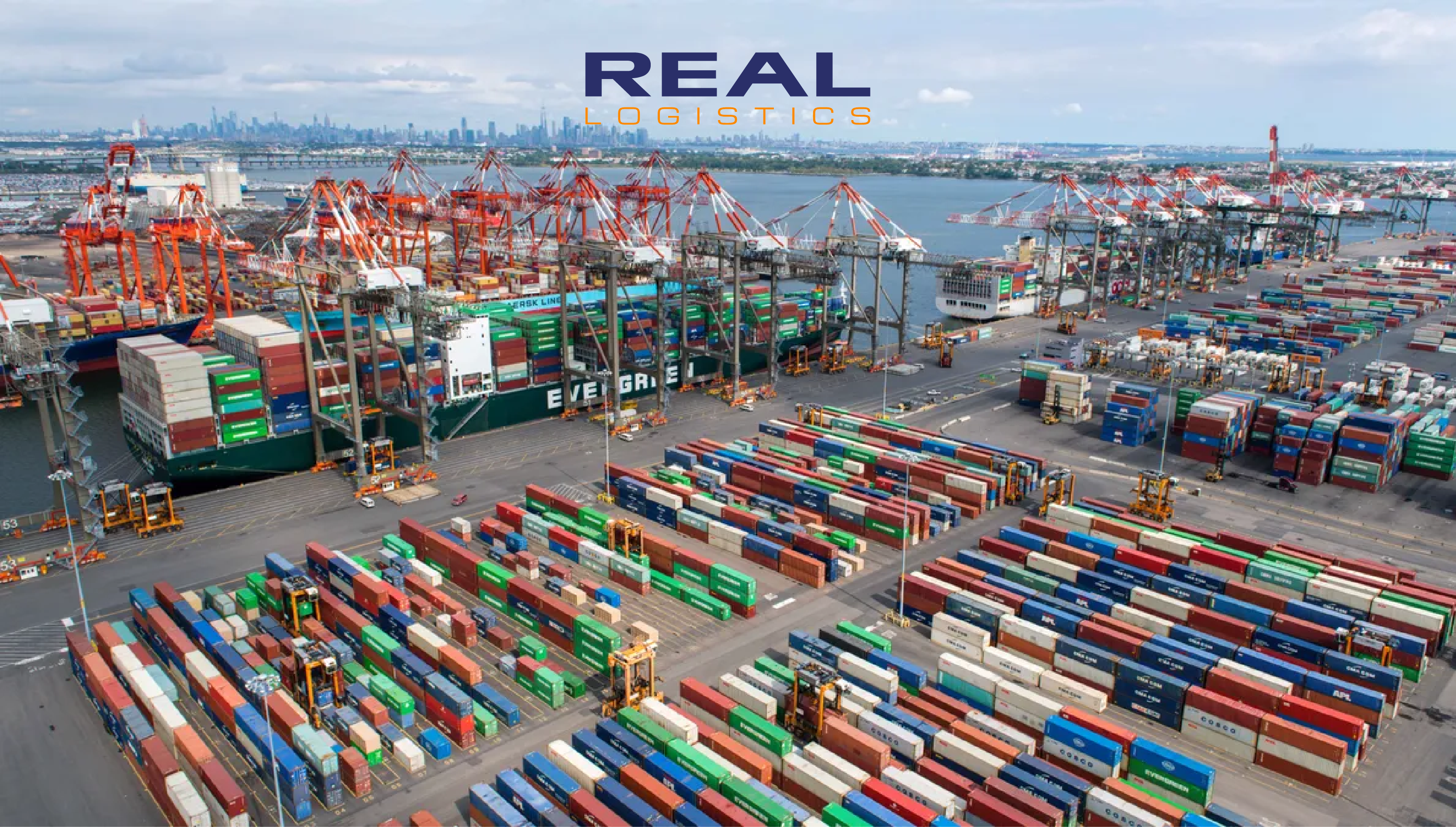Trump Supports ILA in Port Labor Standoff: Impact on Automation and the Logistics Industry

1. Overview of the Port Labor Standoff
The recent standoff between the International Longshoremen’s Association (ILA) and port employers has captured national attention, especially with President-elect Donald Trump siding with union dockworkers in their opposition to port automation. The ongoing labor conflict, which involves over 45,000 workers across 36 ports on the East and Gulf Coasts, centers on the deployment of semi-automated container cranes, a move that the ILA argues will cost jobs.
From a logistics perspective, this situation poses significant challenges for both U.S. ports and the broader supply chain. Trump’s support for the ILA emphasizes the human impact of automation, but it also raises critical questions about the future efficiency and competitiveness of American ports in the global market.
2. Trump’s Stance on Port Automation
Donald Trump’s public backing of the ILA highlights his opposition to port automation. He argues that the savings from automation do not justify the harm it causes to American dockworkers. Trump’s message calls on foreign-based terminal operators and ocean carriers to invest in human labor rather than expensive machines that may not yield long-term gains.
For the logistics industry, this stance signals a potential slow-down in the modernization of U.S. ports, as automation is often seen as a necessary step to increase container throughput and meet rising demand. The debate between maintaining human labor versus implementing technology remains at the forefront of discussions about the future of port operations.

3. The Role of Automation in Logistics and Supply Chains
Automation in logistics has long been considered essential for increasing efficiency, reducing costs, and improving safety. In the context of port operations, automated cranes and systems can speed up container handling, reduce errors, and enhance port capacity. These improvements are critical to keeping U.S. ports competitive globally, as international trade continues to grow.
However, automation also presents challenges, particularly in terms of job displacement. The ILA has expressed concerns that allowing semi-automated cranes into U.S. ports will reduce the need for human dockworkers, leading to job losses. While employers argue that automation will create more jobs in the long run, especially as container volumes increase, the immediate effects on labor remain a contentious issue.
4. Impact of the ILA Strike on U.S. Ports
The potential for further strikes by the ILA poses a major threat to U.S. ports and supply chains. In early October, a three-day strike halted container handling worth billions of dollars. With the possibility of another strike in January, many shippers are rushing to frontload imports to avoid disruptions.
From a logistics viewpoint, strikes at major ports can lead to severe delays, increased costs, and a ripple effect throughout the supply chain. Retailers, manufacturers, and other industries that rely on timely delivery of goods could face significant challenges if the situation is not resolved quickly.

5. Legal and Political Implications: The Taft-Hartley Act
The legal landscape surrounding port labor disputes is shaped by the Taft-Hartley Act, which grants the U.S. president the authority to temporarily pause strikes if they pose a threat to national health or safety. In 2002, President George W. Bush invoked the act to end a strike by West Coast dockworkers.
Although Trump has not yet signaled any intent to intervene directly, the possibility remains that he could use the act to prevent further disruption to the U.S. economy. For the logistics industry, the uncertainty surrounding labor disputes and potential government intervention adds another layer of complexity to an already strained supply chain.
6. The Future of U.S. Ports and Supply Chains
The debate over port automation is not just about labor versus technology — it is about the future of U.S. competitiveness in the global market. Ports are critical gateways for international trade, and their efficiency directly impacts the ability of American businesses to access global markets.
The statement from the United States Maritime Alliance (USMX) underscores the need for modern technology to improve worker safety, boost port efficiency, and strengthen supply chains. Increasing port capacity through automation can lead to more goods being moved, ultimately benefiting both dockworkers and the broader economy.
7. Conclusion: Balancing Labor and Technology in Logistics
The standoff between the ILA and port employers highlights a fundamental challenge facing the logistics industry: how to balance the need for technological innovation with the protection of human labor. While automation offers clear benefits in terms of efficiency and capacity, the social and economic impact on workers must also be considered.
As the logistics industry evolves, U.S. ports must find ways to modernize while ensuring that workers are not left behind. The resolution of this labor dispute will have far-reaching consequences for the future of American ports, supply chains, and the global competitiveness of U.S. logistics.
—————————————
Real Logistics Co.,Ltd
👉 Facebook: Real Logistics Co.,Ltd
☎️ Hotline: 028.3636.3888 | 0936.386.352
📩 Email: info@reallogistics.vn | han@reallogistics.vn
🏡 Address: 39 - 41 B4, An Loi Dong, Thu Duc, HCM City
51 Quan Nhan, Nhan Chinh, Thanh Xuan, Ha Noi City

